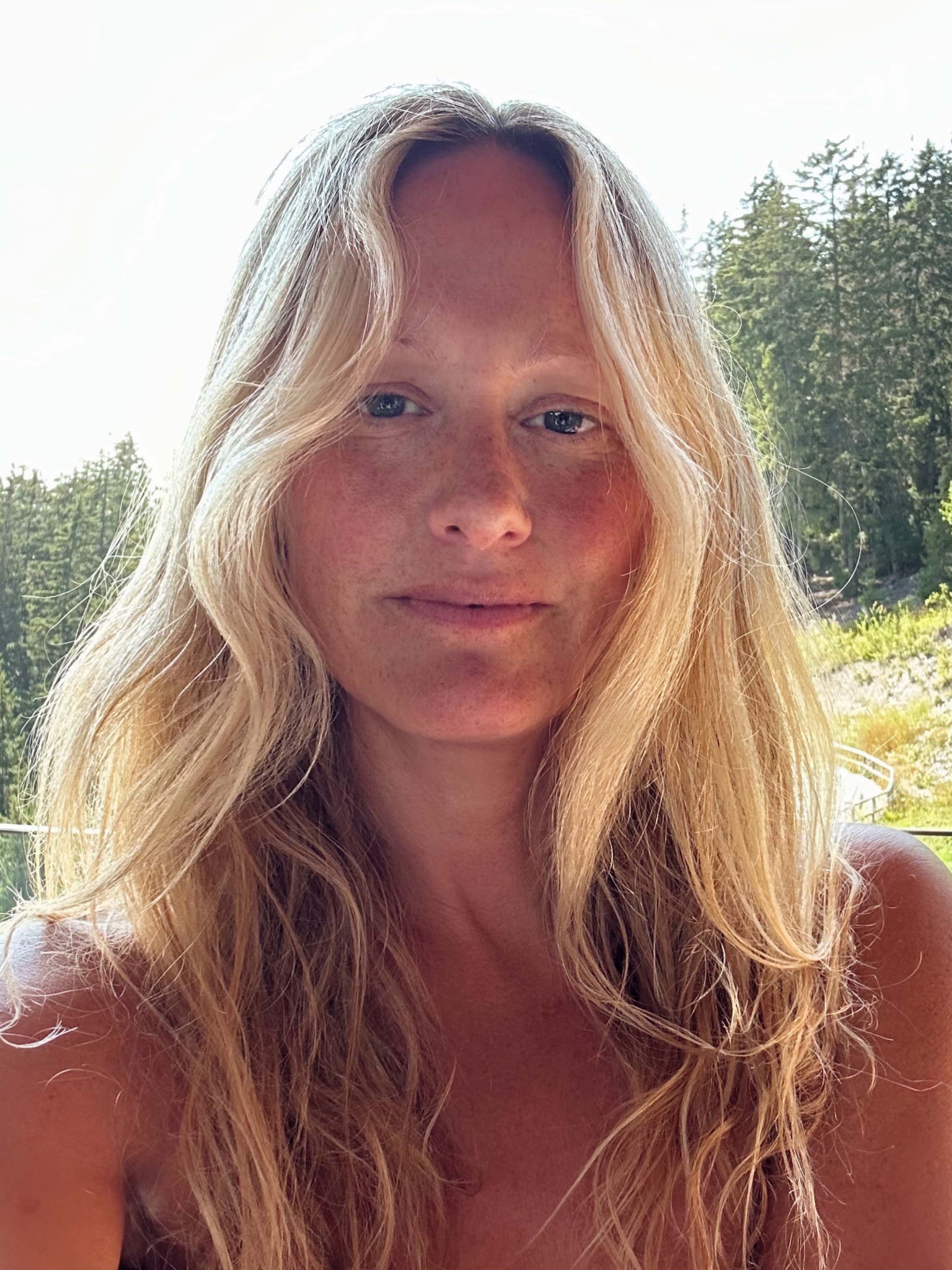Three Ayurveda experts talk about the Indian approach to beauty
Allow us to introduce you to the Ayurvedic beauty trailblazers who are pioneering ancient Indian approaches to wellbeing and beauty rituals
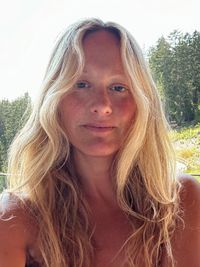
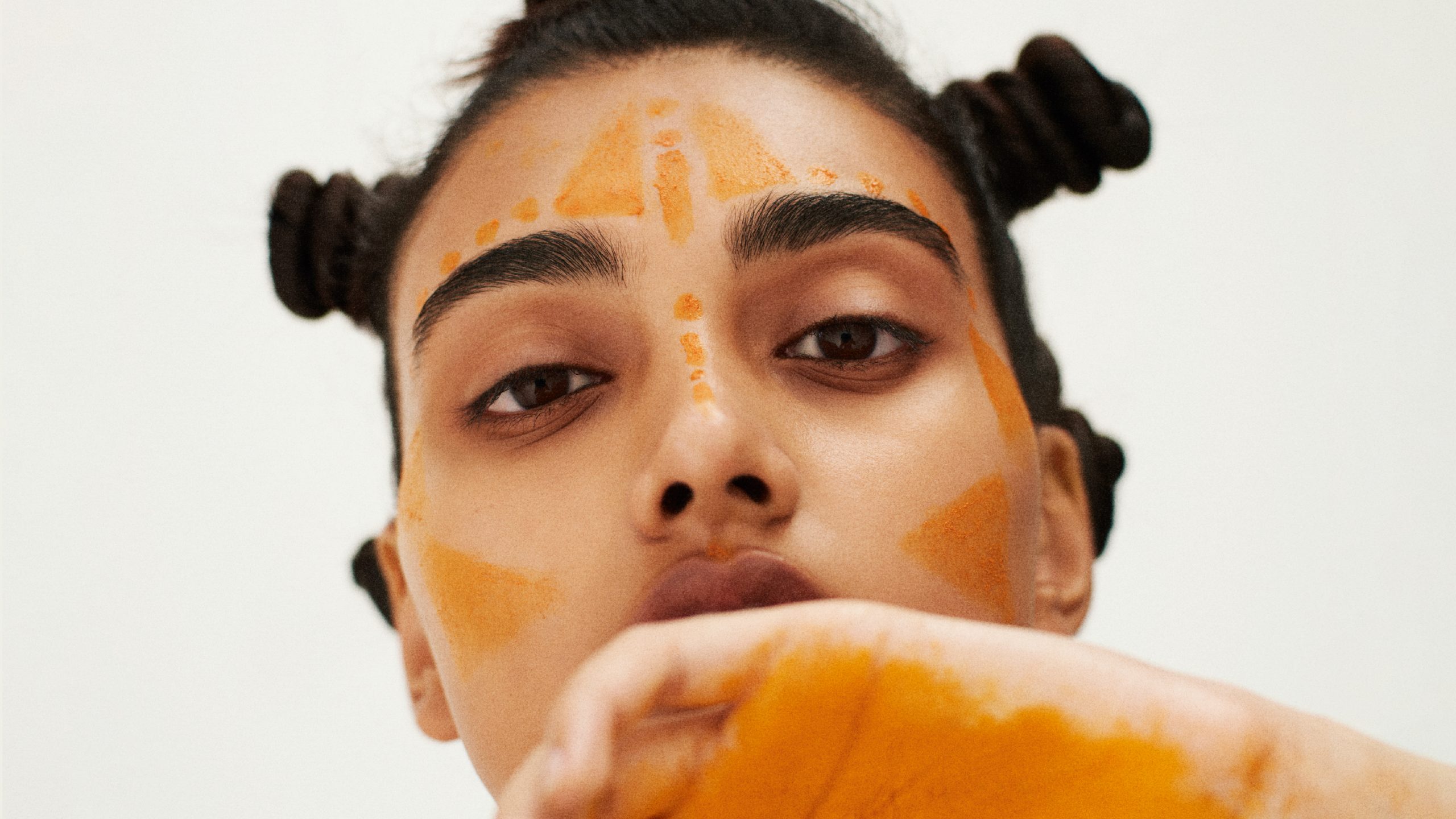
Allow us to introduce you to the Ayurvedic beauty trailblazers who are pioneering ancient Indian approaches to wellbeing and beauty rituals
The ancient science of Ayurveda is one of the world’s oldest whole-body healing systems, developed more than 3,000 years ago in India. It is based on the belief that health and wellness depend on a delicate balance between the mind, body, and spirit, using potent herbs and spices, and it’s been garnering lots of interest lately.
After the last few years, it’s not surprising that we’re searching for products, treatments and solutions with a holistic and non-toxic approach. The global Ayurveda market, valued at £3.7 billion in 2017, is expected to touch £12.5 billion by 2026. Fable and Mane, a popular Ayurveda-inspired hair brand sold at Selfridges, Cult Beauty, and Boots online has reported a huge increase in sales and sold out three times during the pandemic. Indian beauty powerhouse and influencer Diipa Buller-Khosla is onboard with her beauty range indē wild and recently sold out in the first 2.5 hours when the range launched in India. Meanwhile Forest Essentials, has grown from a small company and is now set to be one of the biggest names in beauty.
Here we celebrate the three pioneers at the heart of the Ayurveda movement…
Mira Kulkarni, founder of Forest Essentials
During 2000, Kulkarni created a revolutionary moment for the Indian beauty industry with a new segment known as Luxury Ayurveda – high quality Indian products that keep the inherent properties of Ayurveda intact and are pleasurable to use. This led to the formation of Forest Essentials – products sourced from fresh, pure herbs, hand-pressed oils, medicinal roots, and precious flowers which are prepared according to ancient formulations and techniques.
Kulkarni explains that in India there is a very clear concept of what Ayurveda is and that everyone understands its depth as it is ingrained in the Hindu culture - but the perception of a product was medicinal, effective, and inexpensive rather than pleasurable or a luxury.
"We were brought up as children being forced to use oil on our skin and hair, but the oil used was viscous. There was no attempt to add a herb to make it more pleasant. If I was given a choice I would want to buy something that was pure to use on my skin, hair, or children. At that time, a soap would cost about 20 rupees and, when I first started making bars, they came to 100 rupees each because of the ingredients. Everyone said it was too expensive. But we kept selling out."
Celebrity news, beauty, fashion advice, and fascinating features, delivered straight to your inbox!
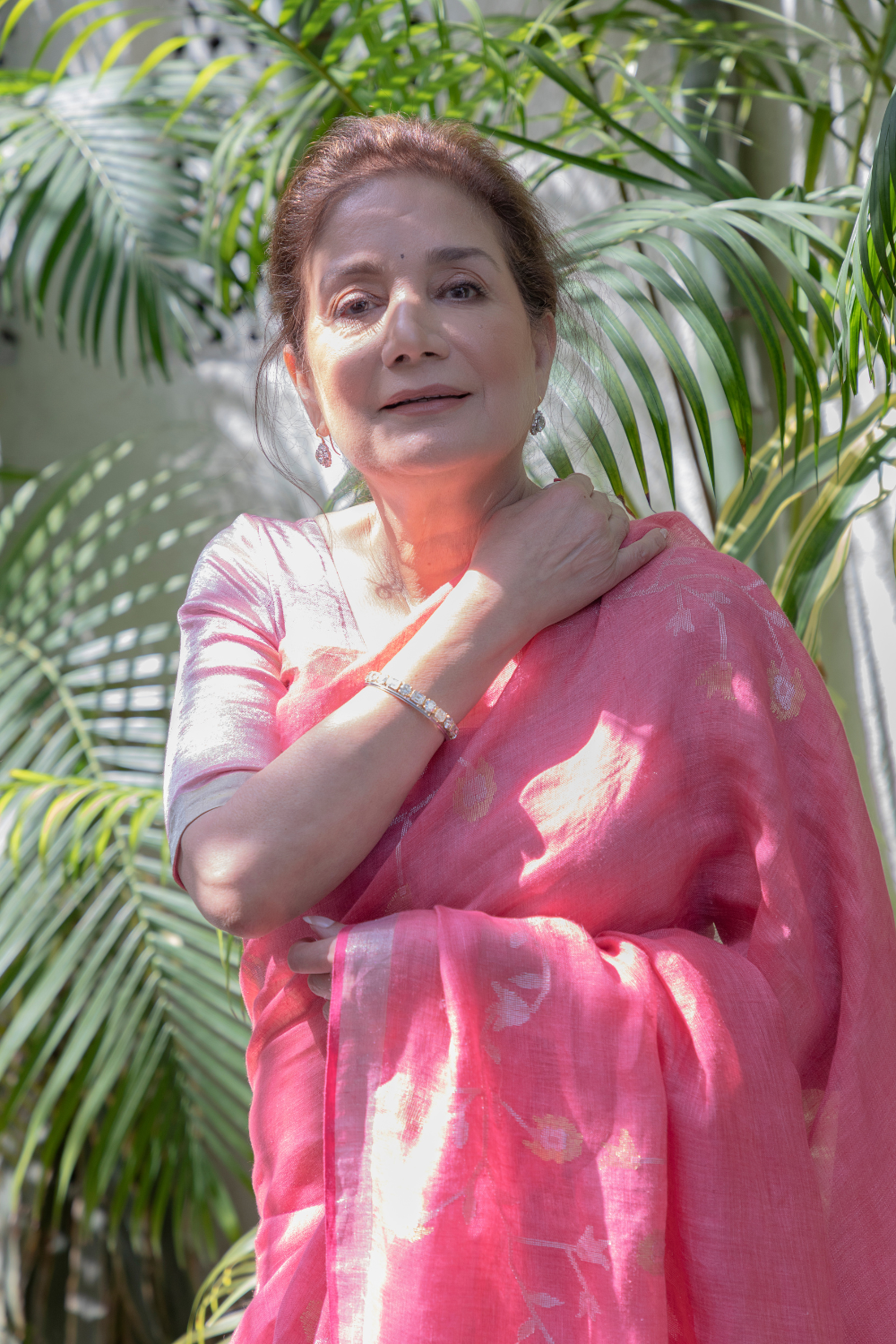
The products are made using ancient techniques and the company ensures they appeal to all five senses – the ultimate Ayurvedic way.
For exceptionally effective skincare Kulkarni uses a certain type of fermentation. "You take fruit, seeds, and herbs, put them into clay pots, and store them underground. India is very hot so it quickly creates this fermented matter that’s very high in fruit acid," she says.
Pots of cream are made by hand so the workers chant a mantra which is believed to bring positive vibrations into that space which are then absorbed into the product.
Massage is very integral to the rituals, giving the underlying muscles a facelift – as well as it being an act of self-care. Kulkarni explains that this feeds into beauty through the Ayurvedic lens being a balance of inner contentment and serenity and outward physical manifestation.
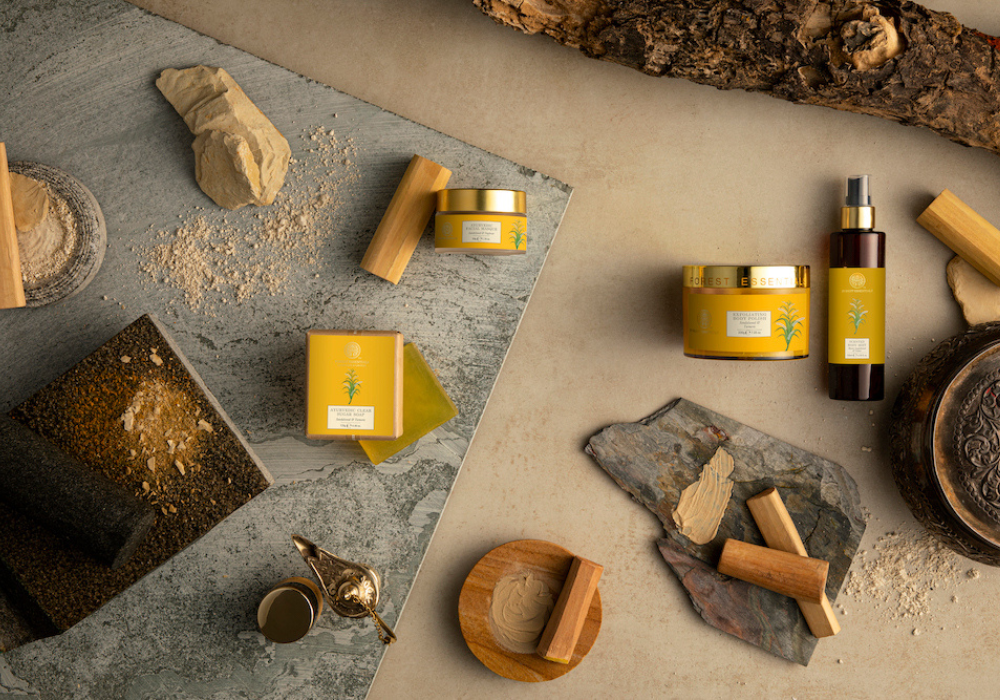
When Kulkarni first opened her factory, women were not allowed to work in the village because of the culture, but a lot of the processes required the dexterity of the women, so she met the head of the village - "a very chauvinistic guy along with a group of village elders who were the decision-makers." She said "I want the women to come to our factory and do some work, but he said - ‘absolutely out of the question. Our women work in the houses.’ I sat with him for many hours and the next day two women came into the factory. We opened bank accounts for them - they were in shock - 'nobody else can touch the money?’. It was such a liberating experience and now we have the highest number of women working for us in India."
It’s no wonder that Kulkarni has been repeatedly honoured with prestigious awards including Fortune India’s Most powerful women in Business for nine consecutive years.
Nikita Mehta co-founder of Fable and Mane
Growing up, Mehta regularly travelled to India from the UK to visit her grandparents and remembers it being a loving childhood surrounded by fragrant cooking, and the scent of the oil that her grandmother used on her hair. India is known for thick long hair and hair oiling has been passed down through many generations but it wasn’t celebrated, even though the premise is the ultimate act of self-care.
"In the west, the word sneha in Sanskrit is an act of self love," says Mehta. "The more we are on our screens, the more we yearn for the warmth of a mothers fingers or grandmother's story-telling and authentic connections which bring us joy. A moment of stillness in the chaos."
Mehta wasn’t born in India but wanted to go back to her roots and has been dedicated to reading female Indian authors, mystics, and gurus to inspire her own self love journey. "I love strong women and the ones who are fighting for their rights. I love the fierceness and beauty of some of the Bollywood stars. Every day I read and learn Indian wisdom."
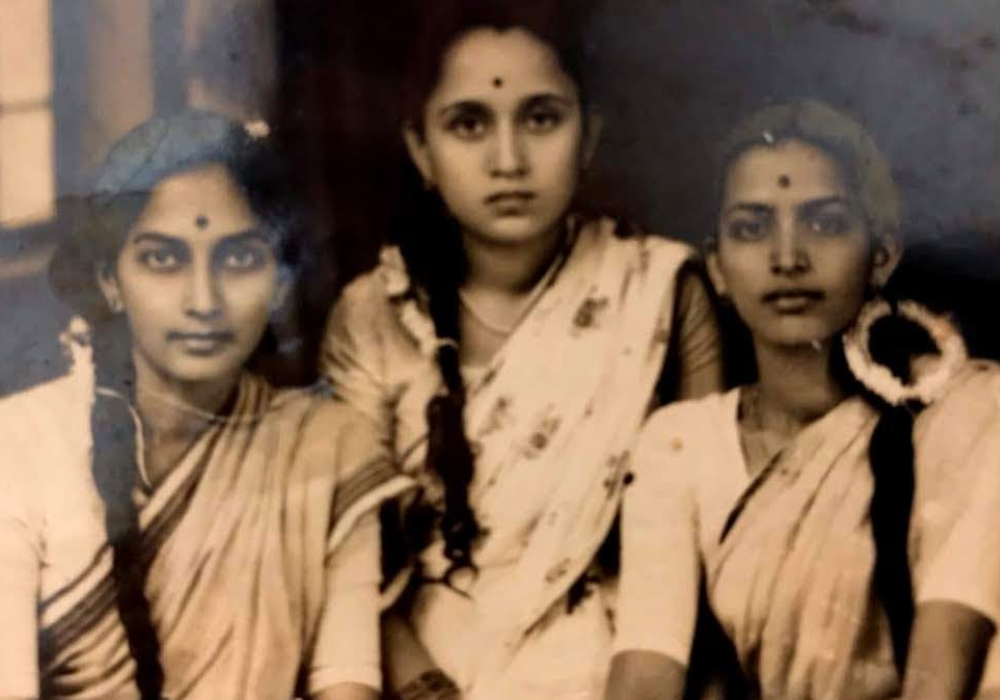
"For example, people in rural areas don't have access to GPs but herbal doctors are really common - a respected profession available to everyone. The herbal doctors diagnose you from looking at your tongue and your pulse and then they prescribe different natural ingredients depending on their region. These ingredients have stood the test of time and we know they work - with education and awareness we’ll have fewer pharmaceutical pills. The women cook healthily and meditate and are so rooted in their body and not their mind."
The richness in colour and diversity in India was what led Mehta to create her hair oiling brand Fable and Mane with her brother. "For us oil is a medium - a great way to penetrate the roots - but really it’s about the need to relax and be rooted in the now."
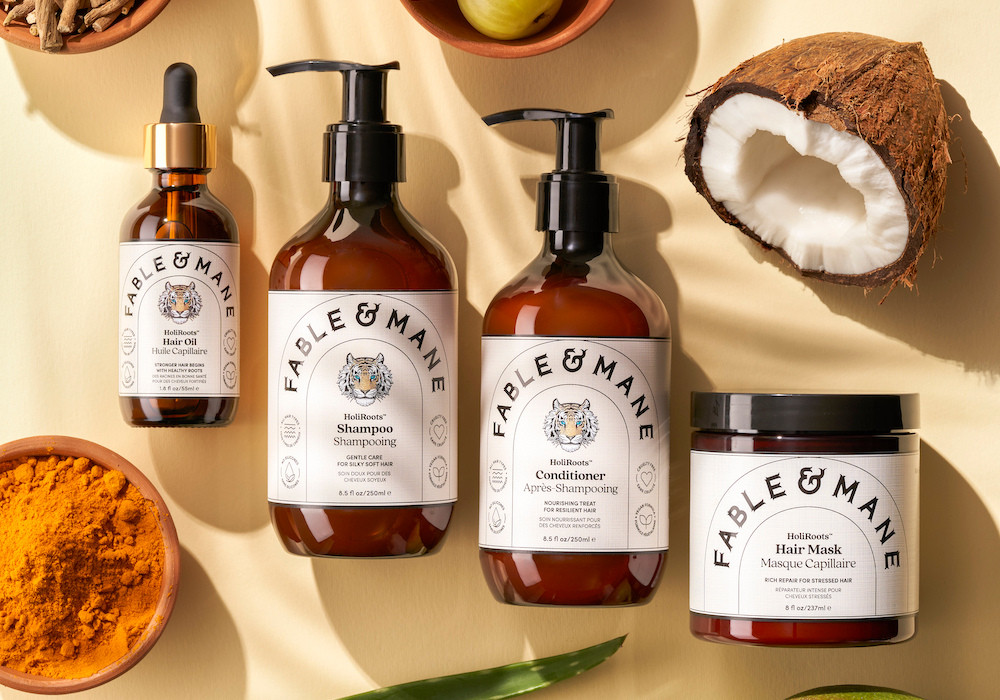
Mehta is adamant that touch is nothing to be scared of: "loving our bodies the way they are is a healthy habit we have to incorporate into our beauty routines. We are constantly being told we are not enough. In terms of beauty standards one of our Ayurvedic doctors says that beauty is not a label but a state of mind. What you think of yourself is crucial - if the inside is right the outside will be ok."
Mehta says that even when you leave India it’s a feeling that still lives on in your heart. It’s the vibrational energy and you don’t have to be Indian to practise Ayurveda - it’s a state of mind.
Diipa Buller-Khosla founder of indē wild
Buller-Khosla is one of the most influential beauty founders with 1.8 million followers on Instagram alone. She says that her career accidentally fell into her lap: "since day one, it has served as a medium to unapologetically be myself, in my own skin." However, getting to this point was far from an overnight trajectory; it was and continues to be a journey of self-discovery and love. "What I realised along the way is that my followers, people just like me, were interested in my story because I was real rather than perfect." Buller-Khosla’s message has evolved but continues to be her "why" in every step of her career. "I’ve openly and honestly shared my struggles with colourism, acne, and confidence issues with my followers, and it resonated with them because it was human," she says.
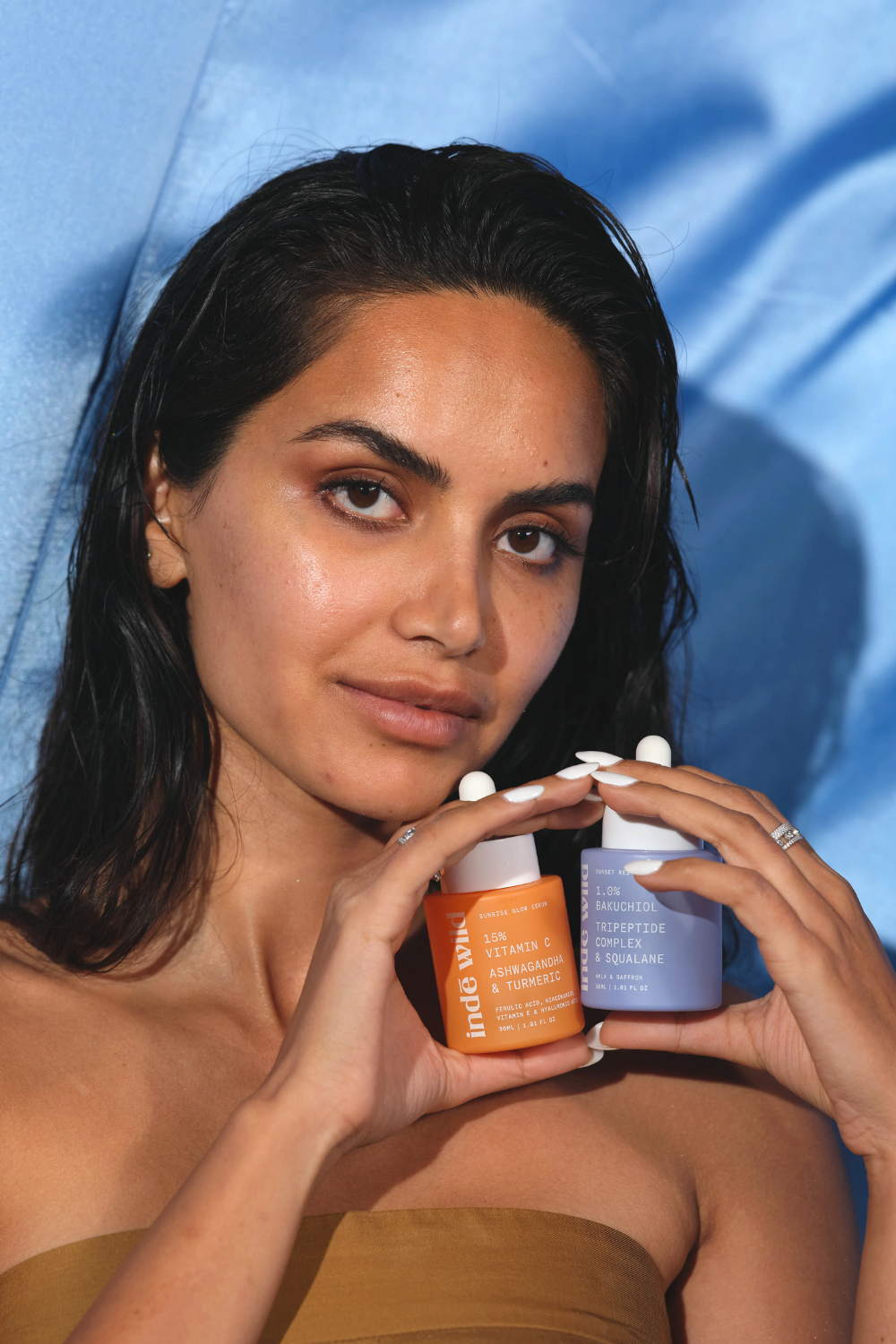
Now, together with her community and her brand, indē wild, she is shattering every beauty norm previously defined for people who’ve ever felt "othered" just like she did. The result — a 100% transparency, 0% Photoshop brand, with stretch marks, hyperpigmentation, and acne scarring all at the forefront of beauty.
Born and raised in India, deeply and proudly rooted in her culture, Diipa then spent her adult life in Europe, so both worlds are equal parts of her dual identity. "Just like so many other South Asians in the global diaspora, I constantly find myself playing an internal tug-of-war between my two identities. It is my mission to break down every barrier in my way and create space for people who look like me." That yearning for representation, particularly in the beauty industry, which has traditionally been unrealistically and unfairly pre-defined, is what makes her a "global Indian".
"As they say, strong women raise strong women. And my mother, a spiritual soul, dermatologist and Ayurveda doctor was – and is – nothing short of a force. She taught me from an early age to stand, head raised, in my power and every fibre of my being as a South Asian woman. I carry that with me to this day and do my very best to teach my daughter, Dua, those very same values." Buller-Khosla’s NGO, Post for Change, a digital platform to push women forward and raise awareness for period equity, menstrual hygiene and mental health, as well as her newest venture, indē wild, continues to pass the torch to women around the globe.
"We’ve been conditioned to think we’re not good enough, we’re naïve, we’re too emotional, or too independent in thought. It’s high time we shatter those patriarchal thought processes. As a South Asian woman with common brown skin concerns like hyperpigmentation, acne and related scarring, etc., products made for all simply don’t suit me. While the intention behind them may be good, blanket solutions do not equate to effective skincare for all." Buller-Khosla has intentionally considered the unique needs of melanin-enriched skin while formulating her products.
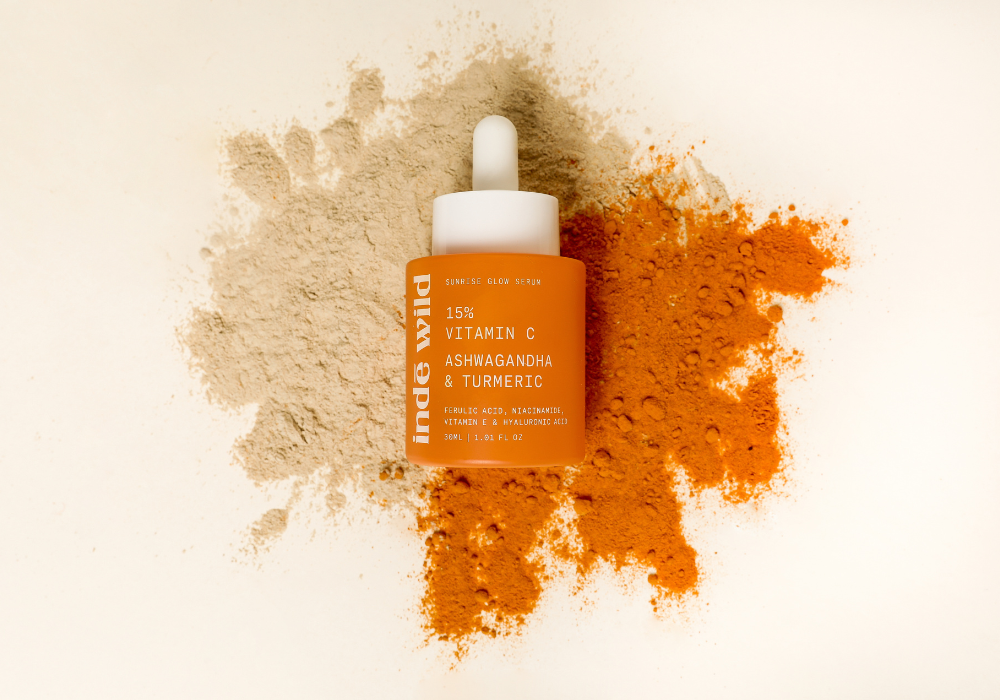
"As someone grounded by my South Asian culture and traditions, I didn’t think twice about infusing them into the brand. Such practices have such strong ties to healing and wellness. It is my goal to elevate our rituals, what I and so many South Asians grew up with, to new heights for all to know and understand.
"Facial yoga is an Ayurvedic skincare practice that plays a big role in my everyday routine. It is a mix of massaging techniques and exercises designed to stimulate and relax the muscles, skin, and lymphatic system and it is proven to help alleviate stress and tension."
Buller-Khosla has recently become a mother, and when asked for her advice for other young mothers she says: "I’d say to toss the unwritten rule books that society has made us feel we need. Motherhood is hard enough as it is, and we simply cannot be bound by how others think we should lead our lives as both homemakers and leaders. At the end of the day, my goal is to create a healthy, enriching life for my daughter where she feels confident in her skin and uninhibited in her ability to achieve anything her heart desires."
Lisa Oxenham is a trailblazing beauty editor, journalist, stylist, and creative director with over 20 years of transformative impact in the beauty industry. As the Beauty and Style Director at Marie Claire UK, she orchestrates high-profile shoots with celebrities and influencers, creating visually stunning and globally resonant content.
A passionate advocate for sustainability, Lisa serves on the Advisory Board for the British Beauty Council's Sustainable Beauty Coalition and the Media Advisory Board. She is also an ambassador for the Soil Association certification and the Amazon Research Institute. Through her "In The Loop" column, she keeps readers informed about the latest advancements in sustainable beauty and supports brands that champion environmental causes, emphasising the need for the beauty industry to reset its priorities.
Lisa's influence extends beyond words; she directs inspiring short films on sustainability and challenges in the beauty industry and is a sought-after public speaker. Recently recognised in the Who’s Who in Natural Beauty 2023, she also champions mental health and eco-conscious practices, demonstrating that glamour and environmental responsibility can coexist beautifully.
